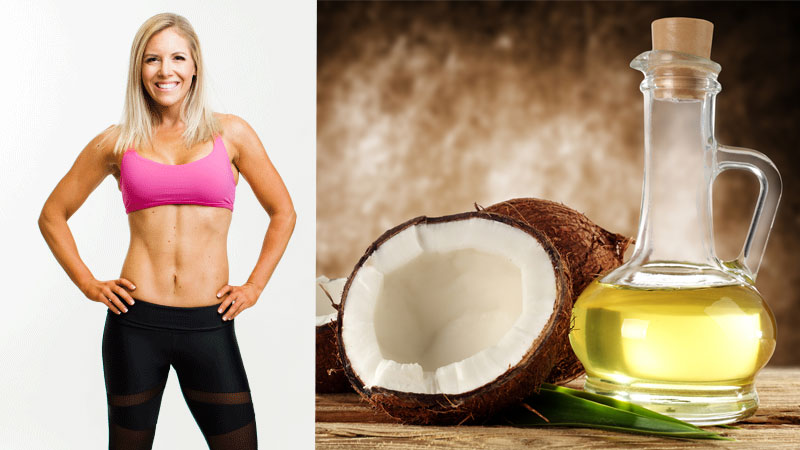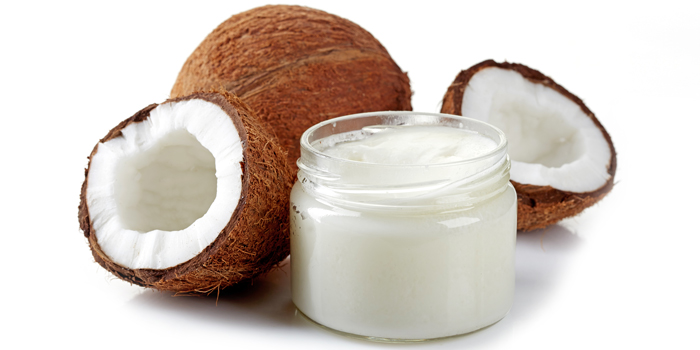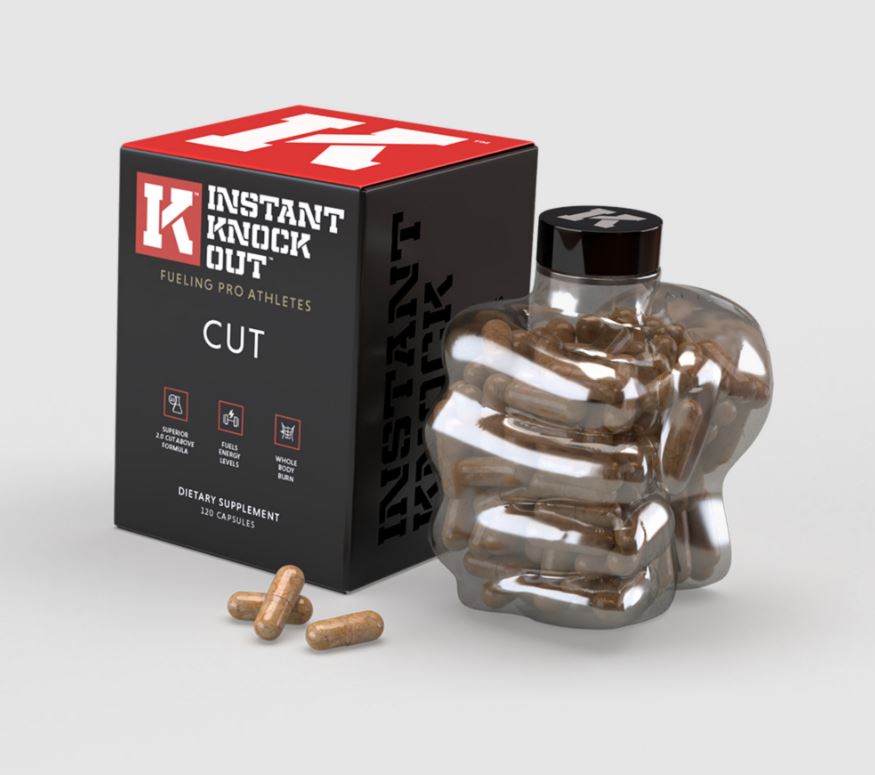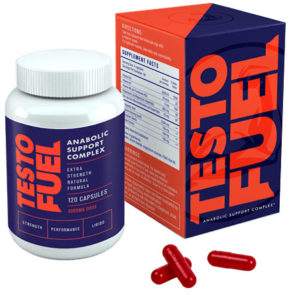
MCT Oil: Uses, Benefits and Side Effects
Some nutritionists consider MCT oil to be a super fuel that increases fat burning and mental clarity. Others believe it adds needless calories to meals and could be a root cause of weight gain.
A big part of any successful weight loss journey is diet. You can pound the pavement and fight the free weights every single day of the week. But if your diet isn’t on-point you’ll struggle to shred those fat cells and develop that hourglass figure you’ve been working hard to achieve.
In this article, we take an honest and expert look at MCT oil. Does it help you burn fat? What are the uses, benefits and side effects?
Let’s take a look.
Spoiler – It’s not actually as great as people think it is…
What Is MCT Oil?
Medium-chain triglycerides (MCTs) are a type of saturated fatty acid that have a smaller atom structure than other forms of fat – 6-12 carbon atoms in total. They’re classed as an aliphatic compound because of their specialized organic structure.
MCT oil is a yellowy, odorless and opaque fluid that is solid at room temperature. The fatty acids in the oil are slightly lower in calories and more easily digested than the kind of fats you’d find in olive oil, fish, nuts, and meat for example. They provide around 10% fewer calories than those with longer chains, coming in at just over 8 kcal per gram as opposed to the standard 9 kcal per gram of ‘long-chain’ fats.
The chemical structure of MCT fatty acids means that they avoid the usual route of digestion. While long-chain fats need bile (released from the liver) to help break them down, MCTs bypass the liver altogether, forming ketones once broken down.
However, it’s worth pointing out that this process is only the same as what happens during fasting or cardio exercise and isn’t anything special as such.
Which foods are high in MCT oil?
The main commercial source of MCT oil is coconut which is around 15% medium-chain triglycerides. As a good source of saturated fat, coconut is 80% fatty acids – most of them coming from lauric acid.
- Lauric acid – 44-52%
- Palmitic acid – 8-11%
- Myristic acid – 13-19%
The high saturated fat content explains why coconut oil is solid at room temperature. Other foods that contain MCT oil include:
- Palm kernel oil – 8%
- Butter – 7%
- Milk – 7%
- Yogurt 6%
You can now also get supplements with medium-chain fats added to them such as energy bars. And while they’re said to be full of MCT oil benefits without side effects, that’s rarely true.

MCT oil is a medium-chain fatty acid compound found in foods such as coconut and dairy. It bypasses liver digestion and has slightly fewer calories than other fats.
[/infobox]MCT Oil Benefits
MCT oil was popular back in the 1990s but then kind of disappeared from existence in the fitness and health world. Over the last couple of years though they’ve experienced a resurgence, most likely off the back of popular low-carb, high-fat diets such as keto.
Might be metabolically healthier than olive oil
High-fat diets contribute to obesity because they can add higher levels of calories to daily intake. And obesity, in turn, contributes to metabolic diseases such as diabetes.
To test if MCT oil was any better for decreasing metabolic risk in overweight men and women, one research project gave a group of 31 volunteers either a diet made up of 12% olive oil or MCT (via muffins and liquids).
The results showed that fasting glucose (blood sugar) was lower in the MCT oil group compared to the olive oil group.
As was cholesterol and blood pressure.
MCT oil might not just improve glucose uptake either. A 2009 study found that when 40 women added coconut oil to their diet instead of soybean, cholesterol levels went down.
May improve sports performance

MCT fats most definitely metabolize differently to long-chain fatty acids. For that reason, many low-carb and keto enthusiasts have claimed that MCT oil could act like a carbohydrate, providing energy similar to glycogen but with the additional benefit of ketone production (which could then be used as energy too).
Although the research is few and far between, the carb-sparing nature of MCT fats has been shown to elevate performance in endurance sports.
One study found that when medium-chain triglycerides were added to the diet of competitive cyclists, carbs used as fuel and oxygen consumption decreased – a sign that the fatty acids improved performance relative to effort.
But before you get too excited by this, bear in mind that most of these research studies used rats and mice as participants and not humans.
Note: Does anyone else wish they could see MCT-fueled mice running on a treadmill or is it just us?
Could improve brain function and memory
A 2016 review showed that not only is glucose uptake impaired in Alzheimer’s disease, leading to cognitive decline; medium-chain triglycerides help to slow down decreased brain function.
The authors of the clinical trial suggested that because the brain has a dependence on energy supply, and that diets high in MCTs increase ketones, a high-fat diet could be beneficial.
Other MCT oil benefits
Throughout the research are other potential benefits of MCT oil that apply to weight loss, athlete performance, and general health. These include:
- Increases gastric emptying – helps to keep food in your stomach for shorter time periods, helping to boost nutrient absorption.
- Long-chain fats form chylomicrons that travel in the blood as a way of providing energy. MCTs travel and absorb much faster, therefore providing quicker energy.
Key Point: MCT oil has been shown to improve markers of health as well as sports performance. However, many of the studies have come from animal studies and human evidence is still lacking.
[/infobox]What About Weight Loss Benefits?
In the grand scheme of things, MCT oil is very early in the research cycle. It’s not like thermogenic fat burning nutrients or female hormone optimizer supplements that are tried and tested and have hundreds of studies to back them up.
To date, the only study showing some interest in MCT oil as a weight loss food reported that…
From the literature reviewed, we conclude that MCT increase energy expenditure, may result in faster satiety and facilitate weight control when included in the diet as a replacement for fats containing long-chain triglycerides.
So it’s not that medium-chain fats burn fat or help you lose weight, it’s just that they could in theory.
Let’s take a look at weight loss and MCT oil in more detail though…

MCT oil isn’t well researched for fat loss and many studies are inconclusive.
][/infobox]
MCT Oil Side Effects – Coconut Oil Doesn’t Seem to Burn More Fat
Now that the research is catching up to manufacturers of MCT oils such as coconut, it’s becoming apparent that what was once thought to be an effective fat burner actually isn’t that great.
The bottom line with fat loss is that without a calorie deficit, triglyceride cells won’t release their stored fatty energy. Even a diet of burgers and donuts will result in fat loss if you achieve a calorie deficit (we’re not recommending this as it’ll result in nutrient deficiencies over time) because a deficit is key.
Evidence showing that MCT oil might help you lose fat is weak
Back in 2015, a meta-analysis report was released via the Journal of the Academy of Nutrition and Dietetics.
In the collection of research papers, the authors suggested that even though some gurus claim MCTs may result in negative energy balance and weight loss, “further research is required by independent research groups using large, well-designed studies to confirm the efficacy of MCT”.
They said that at best, medium-chain fats were an area of interest, but not yet researched enough to show conclusive evidence.
The increase in energy expenditure isn’t very high at all
One of the reported benefits of coconut oil is its ability to increase energy expenditure in overweight adults.
A study by researchers based in the Czech Republic found that when 15 ml of MCT fat was added to the diet of 60 obese participants, daily energy expenditure went up by 130 kcal per day. They lost weight too.
Sounds great.
But if you delve deeper into that study you see that the weight loss experienced by the MCT group wasn’t any different to a control group that didn’t receive the medium-chain fats in their diet.
That’s probably because the increase in energy burn of 130 kcal is only the equivalent of 10 minutes of running or the same number of calories in a cup of grapes.
So How Can You Burn Fat, Fast?
As women, we’ve always been told that to lose weight we need to do hours and hours of cardio and stick to a diet that’s low calorie and boring.
That couldn’t be further from the truth!
Here are the best ways for women to build the body they deserve…
Strength training – lift heavy and build your curves
You can’t choose where your body burns fat. The idea that you can spot reduce fat from your belly, thighs or anywhere else unfortunately just isn’t true. Eating well and training hard on a regular basis will lead to fat loss though, and you just have to be patient.
But, lifting weights helps you to ‘spot accentuate’ specific areas of your body.
By lifting weights you’ll build muscle volume, shape and tone. You can cure your pancake glutes or shapeless arms with the right exercises, and transform your body into something that looks lean and athletic.
Here’s a sample strength plan to get you going…
- Leg press – 3 x 8-15 reps
- Seated row – 3 x 8-15 reps
- Leg curl – 3 x 8-15 reps
- Chest press – 3 x 8-15 reps
- Lunges – 3 x 8-15 reps
- Shoulder press – 3 x 8-15 reps
Eat the right foods and power your workouts
The bottom line is that to lose excess fat you’ve got to be in a calorie deficit. If you aren’t, you’ll never trigger those triglyceride cells to open up and released that fatty energy they keep inside.
Once you’ve achieved your deficit though, you need to focus on foods that give you the most ‘bang for your buck’ in terms of vitamins, minerals, and nutrients.
Having the odd cheat food here and there is actually a great idea as it helps to boost your motivation and adherence, but 80% of the time you should focus on foods like these…
Proteins – you should be aiming for around 0.7-1 gram of protein for every lb of your body weight.
- Lean meat such as chicken and poultry
- Low-calorie dairy such as yogurt and cottage cheese
- Soy
- Seafood
- Eggs
Carbs – these should account for around 1.5-2 grams per lb of body weight.
- Wholemeal grains
- Vegetables
- Legumes, beans, and lentils
- Fruit
Fats- these should account for around 0.4 grams per lb of body weight.
- Coconut (MCT oil obviously) and avocado
- Eggs
- Nuts
- A small amount of olive oil
- Dark chocolate
Choose the right supplements and develop a beach-ready body
With a solid exercise plan and the best food choices, you’ll be well on your way to a rockin’ body that screams health and sexiness.
But if you want to take things one step further and develop a figure that drops body fat and tones up fast, you should consider supplementing your diet with the best nutrients too.
Here are our top choices…
Instant Knockout CUT

Instant Knockout CUT is a premium fat burning supplement designed by experts and used by fitness models and pro athletes around the world.
Containing all-natural nutrients such as green tea extract, cayenne pepper, and glucomannan, Instant Knockout CUT delivers a power punch to your fat stores, burning unsightly fat through thermogenesis and reduced hunger.
- More energy
- Better workouts
- Directly burn more fat
- Reduce cravings and appetite
- Lean out and tone up
TestoFuel

TestoFuel is a hormone optimizing supplement created to help elevate testosterone levels. As a woman, testosterone not only plays an important part in your menstrual cycle, but provides many other benefits too.
- Reduced body fat and more defined muscle
- Greater endurance and energy during cardio
- Lower levels of belly fat
- A higher libido
- Better mood
With natural nutrients such as zinc, magnesium and vitamin D, TestoFuel is guaranteed to help you get to where you want to be, in a fast and safe way using the power of your own hormones and not synthetic replacements.
Summary – MCT Oil Benefits and Side Effects
MCT Oil is a type of fatty acid founds in foods such as coconut and palm oil. It has a medium-chain polymer length meaning it doesn’t digest in the gut like normal fats.
Instead, it converts to ketones and could in theory acts similar to carbs as an energy source.
MCT oil has been shown to improve markers of metabolic and cognitive health, as well as sports performance. But when it comes to fat loss, there’s a lack of evidence – and the studies that are available aren’t convincing.
Adding a little coconut oil or MCT oil supplementation to a healthy diet isn’t a bad idea. Just don’t think it’ll make a huge difference to your figure without the fundamentals in place.
![Best Meal Replacements for Women in 2022 [Updated] 17 Best meal replacements for women](https://heyspotmegirl.com/wp-content/uploads/2019/04/what-is-whey-protein-e1554285730885.jpg)



